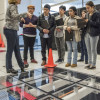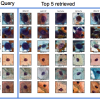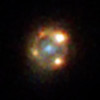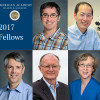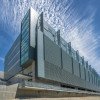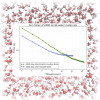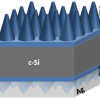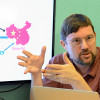News
Kennedy High School Students Spend ‘Amazing’ Day Learning about Berkeley Lab Computing
Twenty students and three faculty members from Kennedy High School in Richmond spent the morning of April 26 looking, listening and learning about the breadth of computing at Berkeley Lab, from desktop machines to supercomputers. The students are enrolled in the high school’s IT Academy, which includes classes on computer design, networking and web design, and integrates those subjects with classes in English, history and science. “It was amazing,” said Jaime, a junior, of the tour of the… Read More »
Recognition Software Drives Matches across Multiple Science Domains
The world is awash in images. Current estimates are that there were 2.1 billion smart phone users in mid-2016, up by half a billion since mid-2014, and they are generating a tremendous number of photos. In a perfect world, no one would store a photo without carefully annotating the place, time, and content next to the image. Of course, most of us are too busy grabbing new images to carefully curate the existing ones. The same is often true for scientists at work, who collect images without… Read More »
Rare Supernova Discovery Ushers in New Era for Cosmology
Using an automated supernova-hunting pipeline based at NERSC, astronomers have captured multiple images of a gravitationally lensed Type Ia supernova. This detection is currently the only one of its kind, but astronomers believe that if they can find more, they may be able to measure the rate of the universe’s expansion within four percent accuracy. Fortunately, two Berkeley Lab researchers have a method for identifying more of these events using existing wide-field surveys. Read More »
Computing Science's Kathy Yelick Among New Fellows Elected to American Academy of Arts and Sciences
The American Academy of Arts and Sciences announced today the election of 228 members, including Berkeley Lab's Associate Director of Computing Sciences Kathy Yelick. Read More »
Shyh Wang Hall Achieves LEED Gold Certification
Berkeley Lab’s Shyh Wang Hall (Bldg. 59) is being commended for its environmental and energy-efficient design after earning a Gold LEED (Leadership in Energy and Environmental Design) certification from the U.S. Green Building Council. Read More »
Women’s History Month: Computing Sciences Trailblazers
March is Women’s History Month, and the theme for 2017 is “Honoring Trailblazing Women in Labor and Business.” So we reached out to some “trailblazers” in Berkeley Lab’s Computing Sciences organization to find out what motivated them to go into this field, what challenges they have encountered along the way and what they consider to be their proudest achievements. Read More »
Former Summer Student Jessica Hatcher Wins Research Award
Berkeley Lab Computing Sciences-sponsored summer student Jessica Hatcher won a first place award for her research poster “Quantitative Structure Activity Relationships (QSAR) for Biological Effects of Synthetic Cathinones” at the 74th Joint Annual Meeting of The National Institute of Science/ Beta Kappa Chi. Hatcher was mentored by CRD's Bert de Jong in summer 2016. Read More »
Berkeley Lab Researchers Make NWChem’s Planewave “Purr” on Intel’s Knights Landing Architectures
Berkeley Lab researchers have successfully added thread-level parallelism on top of MPI-level parallelism in the planewave density functional theory method within the popular software suite NWChem. An important step to ensuring that computational chemists are prepared to compute efficiently on next-generation exascale machines. Read More »
Towards Super-Efficient, Ultra-Thin Silicon Solar Cells
Ames Laboratory researchers are developing a highly absorbing ultra-thin crystalline silicon solar cell architecture with enhanced light-trapping capabilities. Read More »
A “VAST” Step Forward in Cyber Security
CRD network researcher Vern Paxson and postdoc Matthias Vallentin are developing VAST, a system that will help forensic security analysts pinpoint how much of an organization’s computer network has been compromised, and where. Read More »







 Instagram
Instagram YouTube
YouTube